🍪 Hello, we are the cookies!
We're here to make it easier for you to browse, and also to help DUO for a JOB understand how you interact with our site. Is this OK for you?
Continue without acceptingWe're here to make it easier for you to browse, and also to help DUO for a JOB understand how you interact with our site. Is this OK for you?
Continue without acceptingNew Annual Report – Edition 2023!
Today, at over 50, a new life is possible. It’s scientifically proven: from the age of fifty, happiness skyrockets, reaching a kind of ecstasy by about 70! Still active or a young retiree, you dare to travel, learn, you want to share and invest in projects that interest you … You have skills and life experience, so why not put them to work for young people who need you?
Being a volunteer mentor means making a firm commitment to a societal project that makes sense! After being trained by our association, you shall accompany a young person for 2 to 3 hours per week for a period of 6 months. Together, you get to know each other, you define a professional project, look for job offers, training, train to take interviews, talk about labour market law in The Netherlands, but that’s not all!
By sharing the experiences you have gained over the course of your career, you are truly giving a young person the chance to build their own career and, without even realising it, bringing new meaning to your own development.
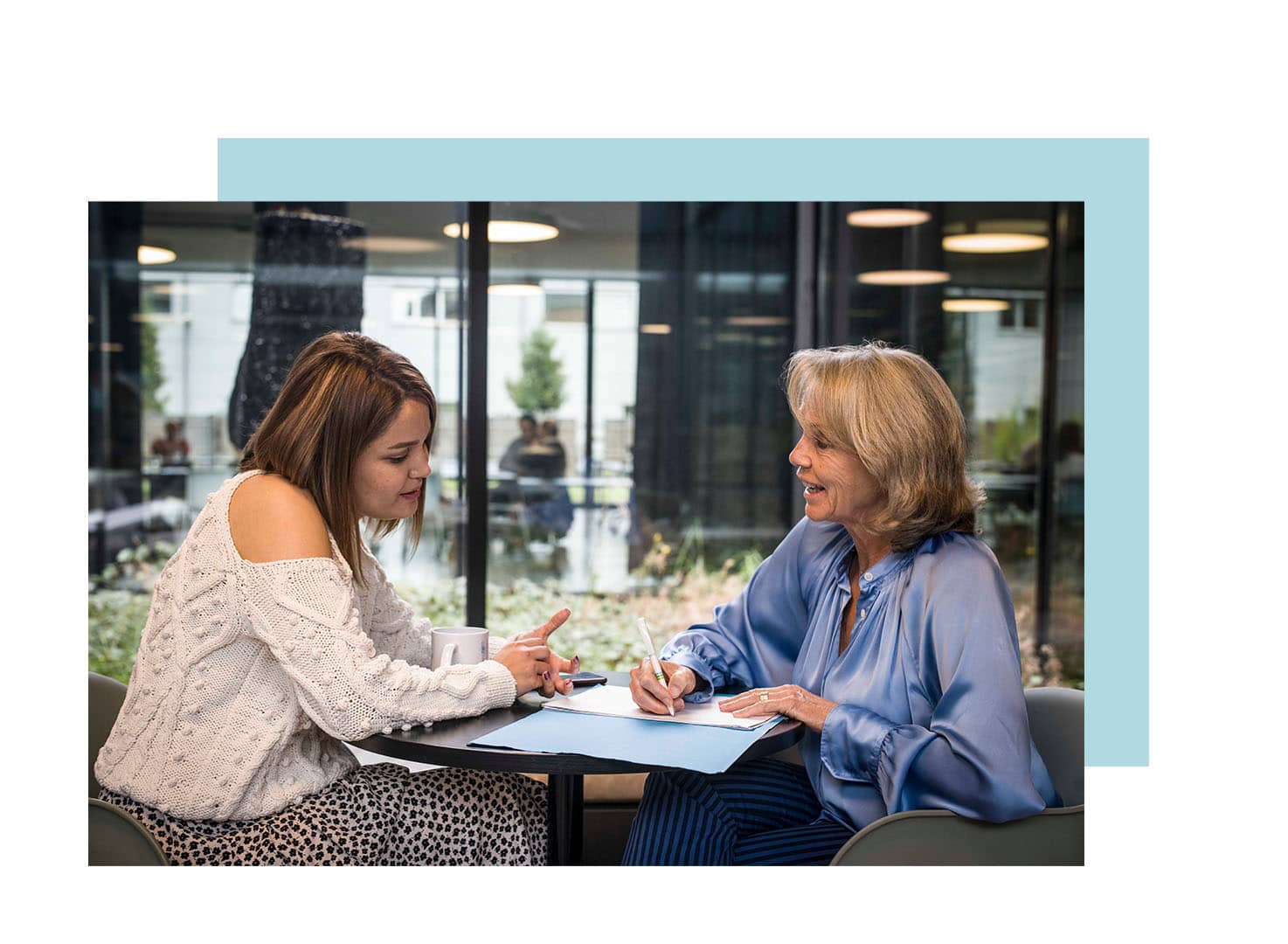

To valorize and pass on your professional experience

To live a unique and enriching experience

To join a network of active mentors

To contribute to society by volunteering

To develop new skills thanks to the offered trainings

No previous coaching experience required!

Are 50 years or older

Are available 2 to 3 hours per week

Have professional experience and are ready to share it
On the one hand, the mentors draw on all the knowledge and experience they have gained throughout their careers, as well as the training and advice they receive from DUO for a JOB, to help the mentees overcome the obstacles in their path. On the other hand, the mentees share with DUO for a JOB their life experiences, their projects, their ambitions and their doubts. Through their eyes, they give them a unique insight into «their reality».
It’s a real «win-win» situation that allows each mentor to remain active, feel useful, question their prejudices, value their skills and develop new ones. When asked:
84%
improved their coaching skills (active listening, empathy, etc.).
61%
found that the DUO experience added value to their professional life.
96%
feel more useful as an active member of society.
The key to the success of DUO for a JOB’s mentoring program lies in the implementation of a methodology and qualitative and effective support based on eight main steps.
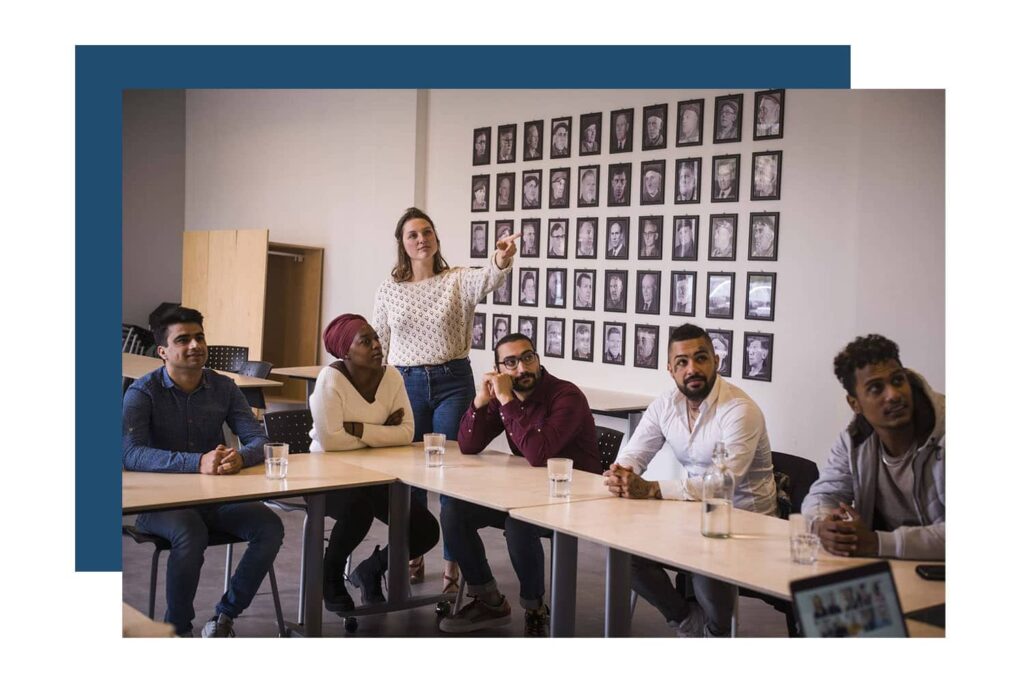
1. Information session
Information sessions are an opportunity to present the project, to clarify the roles of each and to answer any possible questions.
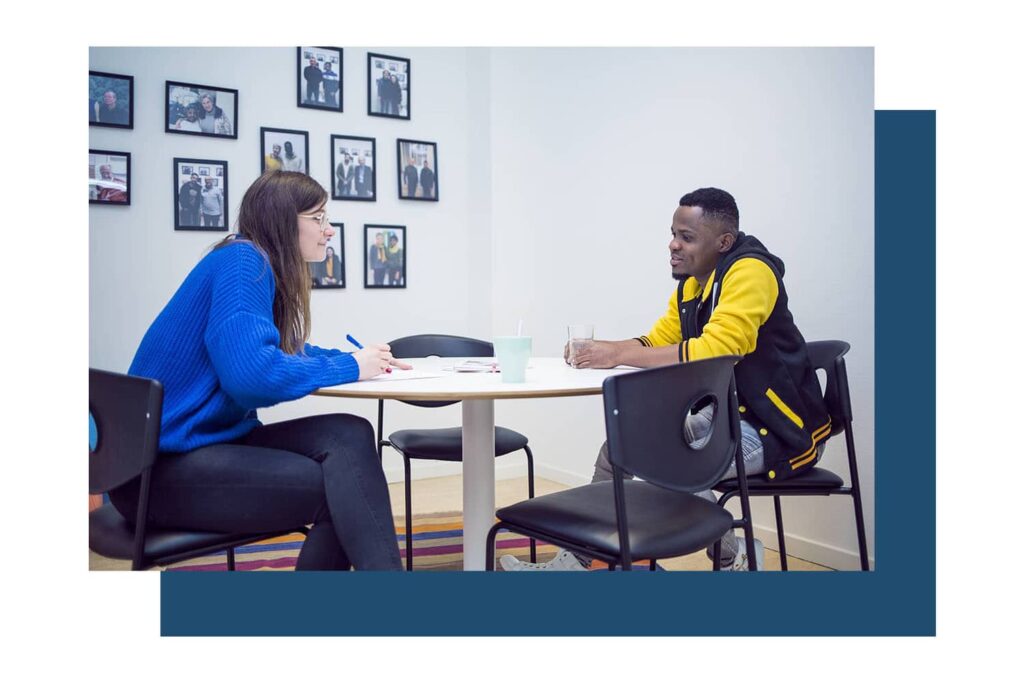
2. Individual interview
If interest in the project prevails, future mentors / mentees then meet an association coordinator in order to learn more about their experience and expectations.
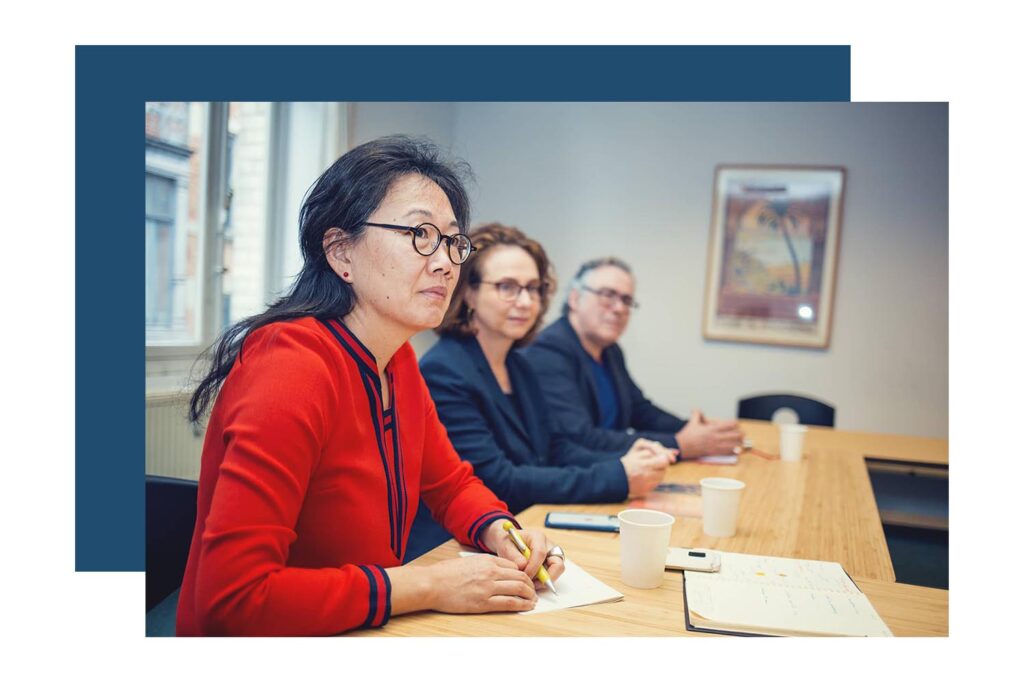
3. Mentor training
New mentors follow an initial training course to provide them with a basic tool kit on the do’s and don’ts of being a mentor.
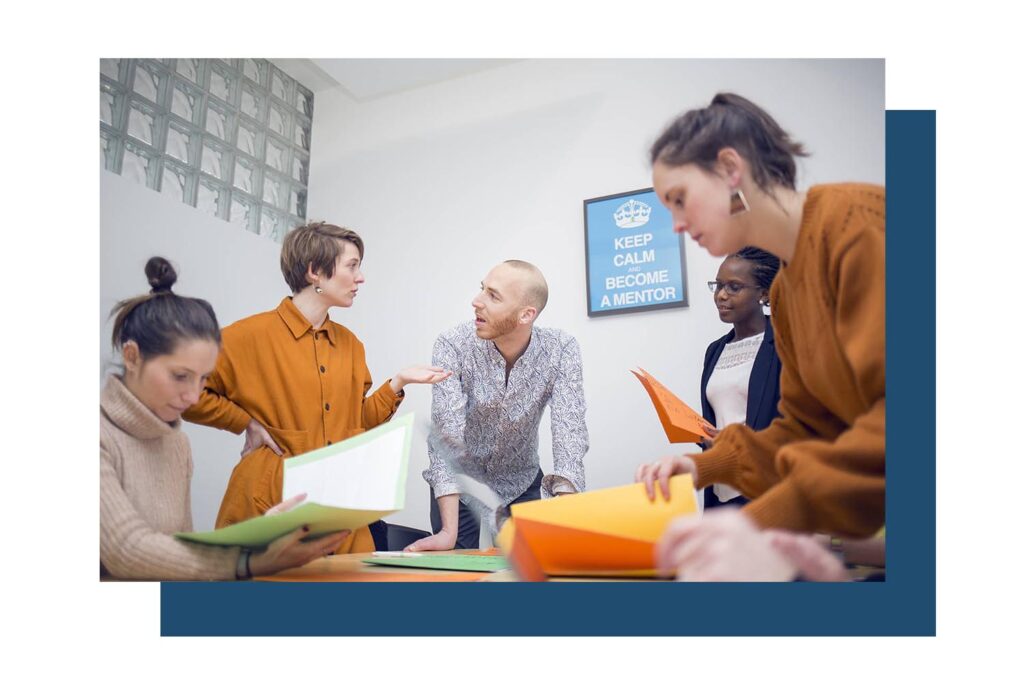
4. Matching
On the basis of different criteria (sector of activity, languages spoken, personality, availability, etc.), and taking into account all respective needs and skills, the coordinators constitute the new duos: this is the matching session.
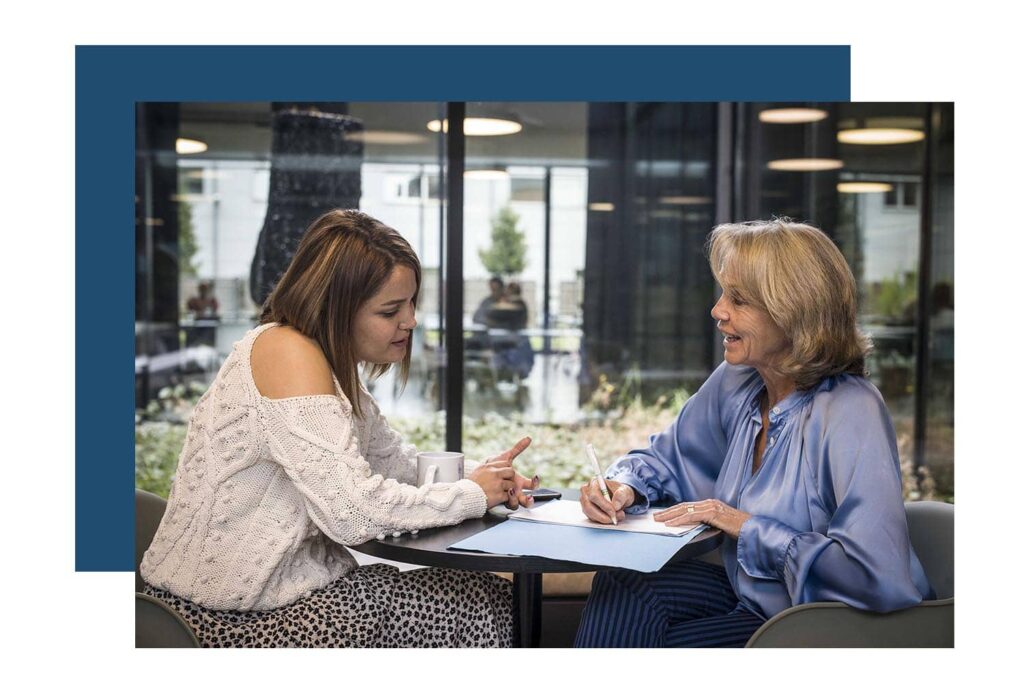
5. First meeting
The first meeting is an opportunity for everyone to get to know each other. After this meeting both the mentor and the mentee will decide independently whether they want to work together or not.

6. Signing of the Agreement and the Charter
If the mentee and the mentor confirm that they want to continue together, a second meeting is organised to sign the mentoring agreement that clarifies the framework and the commitments of each party, and “officially” marks the beginning of the support period.

7. Period of mentoring
The accompaniment period, during which the pairs will meet once a week, lasts a maximum of six months. Each duo is accompanied by a coordinator from the association.
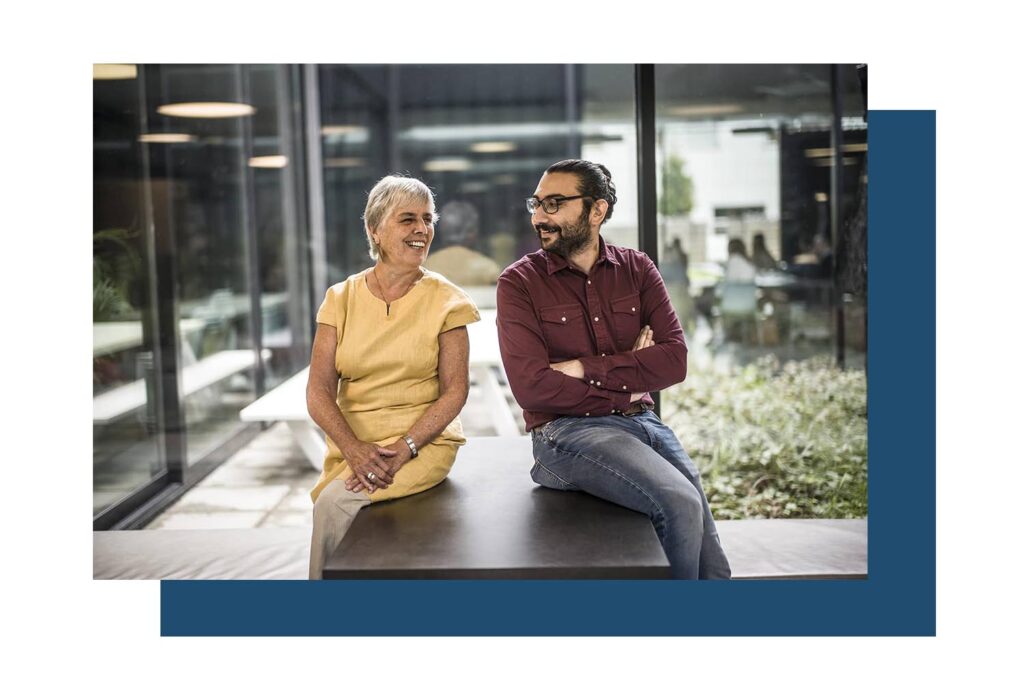
8. Evaluation
At the end of the 6-month period, the duo is invited to assess whether the programme has met their expectations and whether the objectives they set themselves have been achieved.
I find this project both promising and positive. I wanted to share my experience with others; that’s what I’m doing now with my mentee
Luc, 65 years old
It is so well thought out and organised that I wouldn’t stop anymore!
Chantal, 67 years old
With DUO for a JOB, I had the chance to pass on the best of a whole lifetime and was then surprised to realise that I was actually receiving much more in return, from both the association and my mentee
Jacques, 70 years old
Both exciting and rewarding, each DUO broadens the humanity’s horizons
Françoise, 62 years old
You’ll have to wait a few more years for 2 reasons: on the one hand, DUO has the will to respond to the particular problem of the lack of valuation of the skills and experience of 50+. On the other hand, we wish to guarantee the intergenerational character of the meeting. Since the young mentees who can benefit from the program are between 18 and 33 years old, and we consider a generation to last +/- 25 years, we decided to set the minimum age of the mentors at 50. 😉
Coaching skills are not necessary as the initial training of mentors at DUO gives them enough advice, tools and guidance to feel comfortable in their new role as mentor. A coordinator is appointed to support the mentor in the coaching process during the 6 months of the accompaniment. Meetings between the mentors (“intervision”) are also organised to encourage the sharing of experience and the progression of each person in their role as mentor.
There is no obligation to share your network with your mentee. The mentor’s role is primarily to raise awareness of the need to develop a network, but not necessarily to share his or her own address book. Moreover, it is not only about professional contacts. Neighbours, friends of friends, parents of schoolchildren, shopkeepers, sports partners, are all contacts that the young person can learn to use.
The time constraint is quite light as the minimum commitment is 2 hours per week on average for 6 months, which does not prevent you from going on holiday or devoting time to other activities! Moreover, our programme offers the possibility of meeting online, which allows you to save time on transport.
No, the program is completely free to all our participants. However, financial support from mentors is welcome and many mentors decide to support our work by making one-time or monthly donations themselves, by organizing events (weddings, birthdays, etc.) or by putting us in touch with potential major donors and companies.

As part of our policy on inappropriate behaviour, we ask all our volunteers who work (in)directly with mentees to provide a certificate of good conduct (VOG) and sign a code of conduct.

